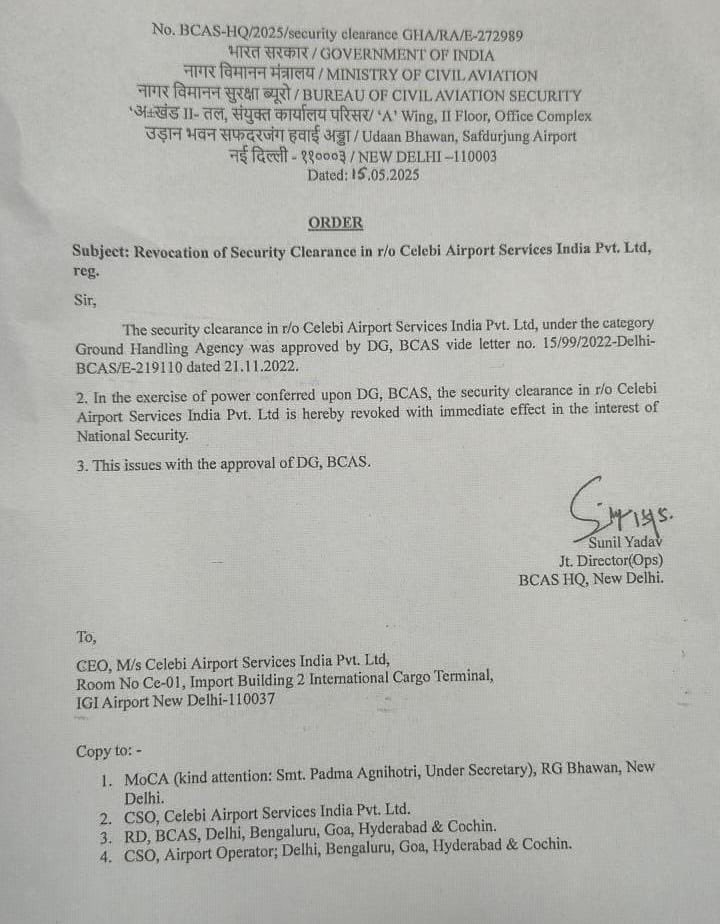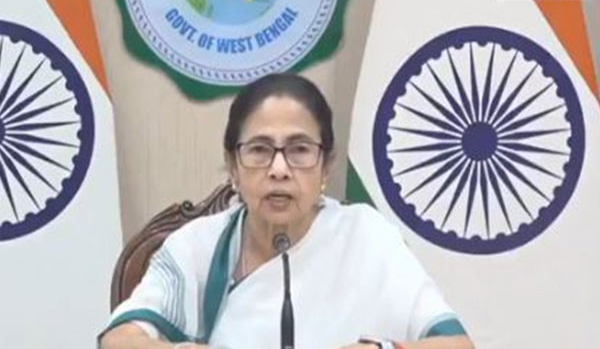What Did the BCAS Do and Why Does It Matter?
The Bureau of Civil Aviation Security (BCAS) in India made a significant decision on May 15, 2025, by revoking the security clearance of Celebi Airport Services India Pvt Ltd, a company linked to Turkey’s Celebi Aviation Holding. This move has affected operations at several major airports in India.

The BCAS, which is India’s aviation security regulator, canceled the security clearance of Celebi Airport Services India Pvt Ltd on May 15, 2025. This decision was made “in the interest of national security,” meaning the government believes it is necessary to protect the country. Celebi, a company originally from Turkey, was working at nine major Indian airports, including Delhi, Mumbai, Bengaluru, Hyderabad, Chennai, Ahmedabad, Goa, Cochin, and Kannur. They handled important tasks like managing baggage, cargo, passenger check-in, and aircraft services. When their clearance was revoked, they had to stop all these operations immediately. This is a big deal because these tasks are crucial for keeping airports running smoothly, and any disruption can affect flights, passengers, and cargo movement across India.
Why Did the Government Take These Steps to revoked security clearance to Turkish ground?
The main reason is national security concerns. Recently, there have been tensions between India and Turkey, especially after Turkey supported Pakistan during conflicts like Operation Sindoor and the Pahalgam terror attack. Operation Sindoor was a military strike by India on May 7, 2025, targeting terror camps in Pakistan, and Turkey’s support for Pakistan upset many in India. There were also reports of Turkish drones being used by Pakistan, which added to the concerns. Celebi had access to sensitive areas in Indian airports, such as passenger and cargo terminals, where security is very important. The Indian government felt that allowing a Turkish company to operate in these areas could be risky, especially given Turkey’s diplomatic stance. Additionally, many people in India, including some political groups, were calling for action against Turkish companies, putting pressure on the government to act.
How Will This Affect Airports and What’s Next?
Since Celebi can no longer operate, the nine affected airports have to find new companies to take over their tasks. This includes handling baggage, cargo, and other ground services. For example, at Delhi’s Indira Gandhi International Airport (IGIA), the airport operator, DIAL, has already ended its contract with Celebi. They are now working with other companies like AISATS and Bird Group to keep services running smoothly. Other airports are also making temporary arrangements with existing ground handling agencies. The government has asked airports to start a tender process, which means they will soon invite new companies to apply for these roles. This transition might cause some delays or challenges at first, but the goal is to ensure that airport operations continue without major problems while addressing security concerns.
What Does Celebi Say and What Does This Mean for India-Turkey Relations?
You may wonder how Celebi responded and what this means for India and Turkey. Celebi Airport Services India Pvt Ltd has denied any wrongdoing. They said they are a professionally managed company, mostly owned by international investors, not directly tied to Turkish politics. They also mentioned that they follow all Indian rules and their facilities are regularly checked by Indian authorities. However, the government’s decision shows how national security and international relations can affect businesses. This move might strain India-Turkey relations further, especially since many Indians are already upset with Turkey for supporting Pakistan. It also reflects a broader trend where India is being cautious about foreign companies in sensitive sectors, especially when diplomatic tensions are high. This situation highlights the balance between business operations and national security in a globally connected world.





















